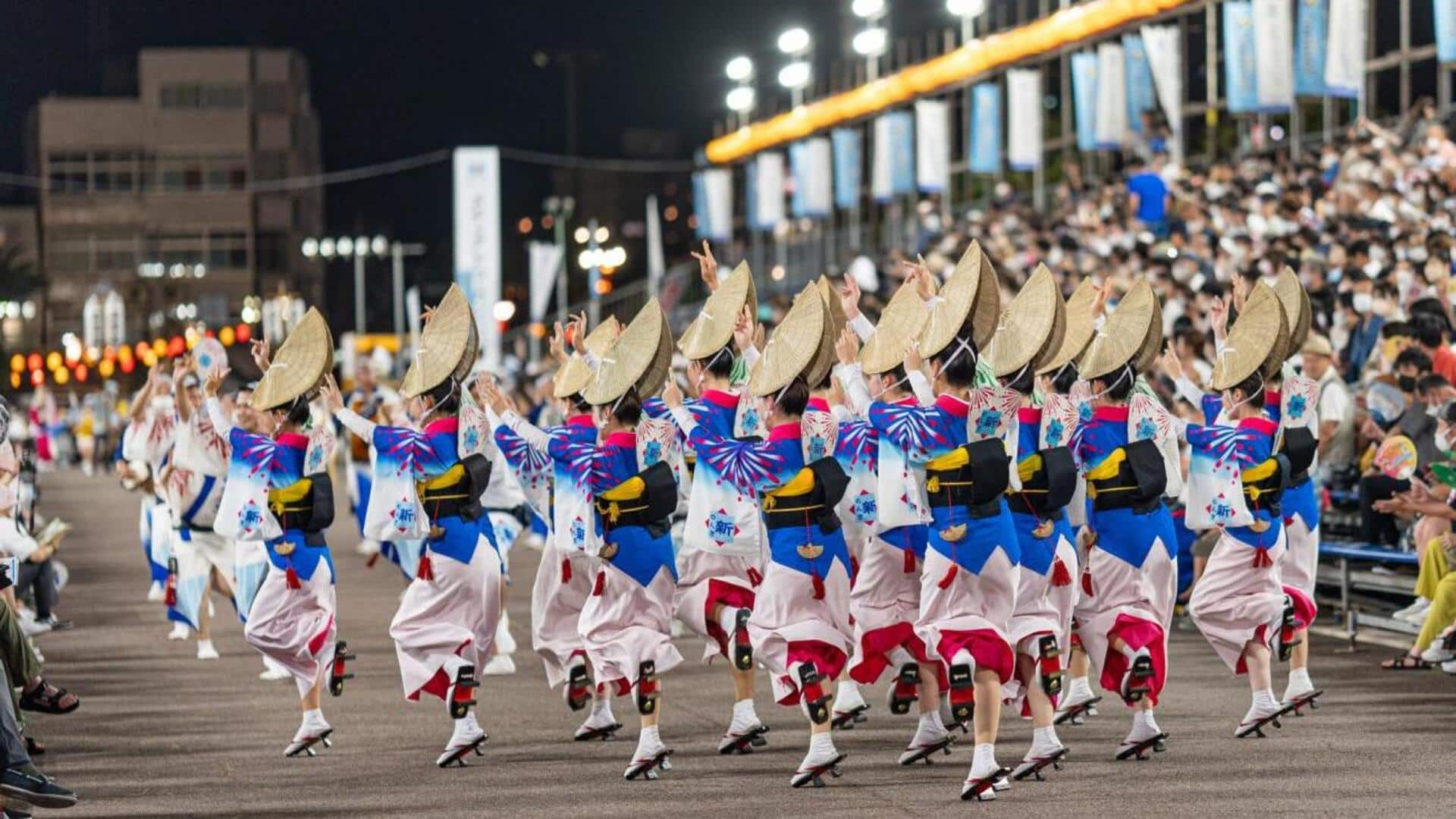
5 fascinating Japanese festival traditions
What's the story
Japan is a culturally and traditionally rich country, with its festivals reflecting its uniqueness. These festivals are not just colorful and vibrant, but also rooted in history and meaning. While some Japanese festivals are famous all over the world, there are others, which remain lesser-known, yet equally fascinating. Here are five fascinating Japanese festival traditions you may not have heard of.
Traditional dance
The enchanting Awa Odori dance
One of Japan's largest dance festivals, Awa Odori, takes place every year in Tokushima Prefecture. The festival sees groups of dancers (called "ren") performing traditional dances to upbeat music played on instruments such as shamisen and taiko drums. Wearing colorful costumes, the dancers chant as they make their way through the streets. The festival sees over 1 million visitors annually, making it a joyous celebration of culture and community.
Bare Festival
The unique Hadaka Matsuri
Hadaka Matsuri, or the Naked Festival, is a quirky event celebrated at various places in Japan during winters. Participants don scanty outfits even in the chilly weather as they vie to touch a holy object for luck for the rest of the year. The practice is centuries-old and represents purification rituals from the ages of yore. Notably, despite its name, participants remain modest while taking part in the fervent competition.
Lantern Parade
The mesmerizing Nebuta Matsuri
Held in Aomori Prefecture every August, Nebuta Matsuri is known for its giant illuminated floats. The floats showcase warriors from Japanese mythology or historical figures. They are constructed from washi paper stretched over wire frames and illuminated from within. This creates stunning visual displays at night parades accompanied by traditional music performances called "haneto." The festival attracts hundreds of thousands of spectators. They come to see these breathtaking creations.
Ancestral spirits
The serene Obon festival
Obon is a Buddhist event in mid-August where Japanese families honor their ancestors by visiting their graves or holding services at home altars, butusdan. Okinawa observes it earlier because of different historical calendars. It's widely celebrated across Japan, regardless of religious faith, with even non-Buddhists participating in respect for shared customs and remembrance of their loved ones.